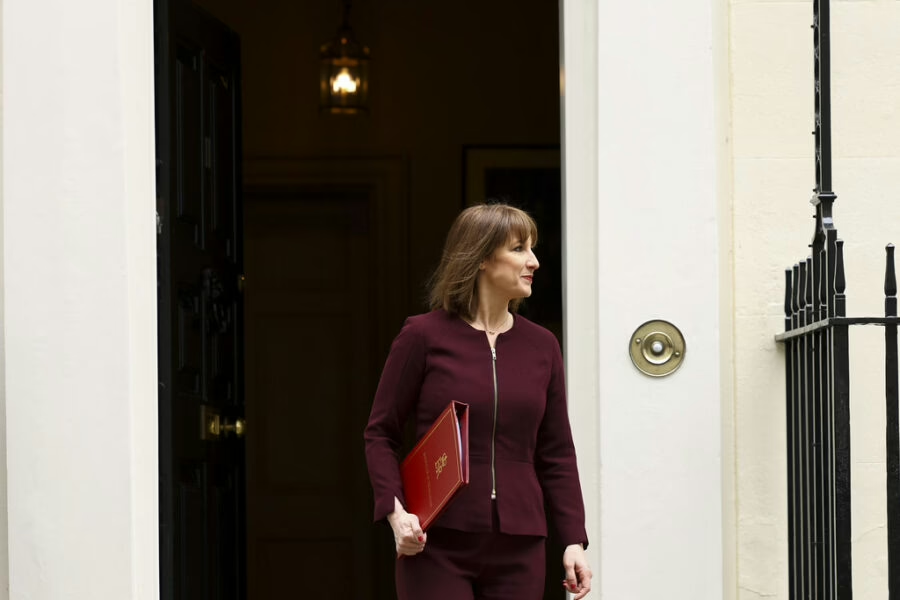
Chancellor Rachel Reeves delivered the Spring Statement on Wednesday, unveiling a £14 billion package aimed at supporting the UK economy. Key measures include increases to the National Living Wage and National Minimum Wage, alongside a £1 billion investment to help people return to work.
However, further cuts to welfare have drawn criticism, with concerns that they could push vulnerable people into financial hardship.
Reeves confirmed that from 1 April, the National Living Wage will rise by 6.7 percent from £11.44 to £12.21 per hour. The National Minimum Wage for 18 to 20-year-olds will see a larger increase of 16.3 percent, rising from £8.60 to £10 per hour.
Alongside wage increases, Reeves announced a £1 billion investment in tailored employment support, set to begin next year. The government aims to get more people into work, but at the same time, welfare cuts have raised concerns. Critics warn that the cuts could have negative consequences for those struggling to enter or remain in the workforce.
Concerns over welfare cuts and their impact on employment
The government’s welfare changes, confirmed in the Spring Statement, have been met with criticism. Ben Harrison, Director of the Work Foundation at Lancaster University, questioned whether the cuts would deliver the intended benefits.
“Making cuts of this nature risks making it significantly harder for many people to access employment,” Harrison said. “The OBR has been unable to fully certify the impact the proposed welfare cuts will have on reducing spending and getting people back to work, but the verdicts of those groups representing disabled people are clear about the substantial impact on living standards they are likely to have on some of the most vulnerable people in society.”
Harrison welcomed the additional funding for employment support but warned that cuts affecting disabled people could increase financial insecurity and lead to unsuitable job placements.
Trade unions have also raised concerns. Paul Nowak, General Secretary of the Trades Union Congress (TUC), warned against policies that could worsen inequality – although he welcomed the pledge to invest on public services.
“Labour inherited a toxic economic legacy from the Conservatives,” Nowak said. “But at the Budget the Chancellor took the right call to invest in repairing our public services and infrastructure. To rebuild Britain this approach must continue long-term. In the face of strong global headwinds, we need to keep building stronger foundations at home. That must include protecting the most vulnerable.”
Nowak also criticised the government’s approach to welfare reform. “Ministers need to rethink their plans. Decisions that affect millions of people’s lives must be made with care – not as a last-minute response to changed fiscal forecasts,” he said. “These changes mean many disabled people – whether they are in work or not – will be pushed into hardship. Removing support could even make it harder for some people to stay in their jobs.”
Business groups call for greater employer support
Business organisations have warned that further action is needed to support employers. The Chartered Institute of Personnel and Development (CIPD) responded to the Spring Statement saying that the government must work with businesses to address cost pressures and regulatory challenges.
Ben Willmott, Head of Public Policy at CIPD, welcomed the support for key sectors and plans to boost investment in infrastructure and housing – but noted that there was “no recognition” of the need to provide more support for employers.
“The Government has been quick to add costs and regulation to businesses through national insurance hikes and the Employment Rights Bill, which have created clear headwinds for employers in terms of additional costs and implementation challenges,” he said. “We now need to see the Government back businesses by setting out how it will work with employers to address these challenges and boost productivity, as together these measures stand to undermine business investment in workforce training and employment.”
He urged the government to work closely with employers to ensure that new regulations do not discourage hiring, particularly for younger workers and those needing additional support. He also called for a clear implementation plan for the Employment Rights Bill, including additional funding for ACAS and the employment tribunal system to handle expected increases in claims.
“If the government wants to see more people in work, then there must be jobs for them to go to,” he said.
The need for skills investment was another key issue. Willmott suggested fast-tracking consultations on the Growth and Skills Levy to help businesses invest in training. “We also need the government to back recommendations from the Keep Britain Working review and improve access to occupational health support for SMEs,” he said.
Calls for a stronger economic strategy
The Recruitment and Employment Confederation (REC) echoed concerns about the lack of employer-focused policies. Neil Carberry, Chief Executive of REC, stressed that economic growth depends on private sector success and that business confidence is being undermined by tax increases and regulatory uncertainty.
“Success for the Chancellor and this government comes from economic growth and the Chancellor was right to emphasise this today,” Carberry said. “But economic growth comes from private sector success – generating the income that funds jobs, tax revenues and ultimately our public services. On that, we remain at a crossroads.”
Carberry pointed to concerns over the upcoming rise in Employer’s National Insurance, as well as what he described as “anti-business rhetoric” from parts of government. He argued that the government’s broader economic strategy must include reforms to the apprenticeship levy, reducing bureaucratic burdens on businesses and closer collaboration with employers to support long-term labour market stability.
Image credit: Alecsandra Dragoi/HM Treasury



